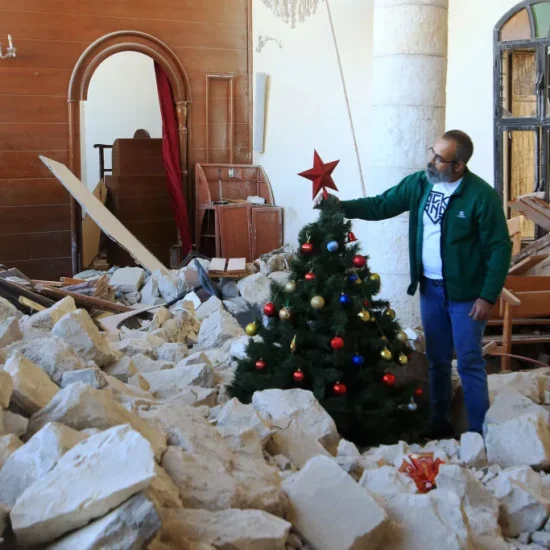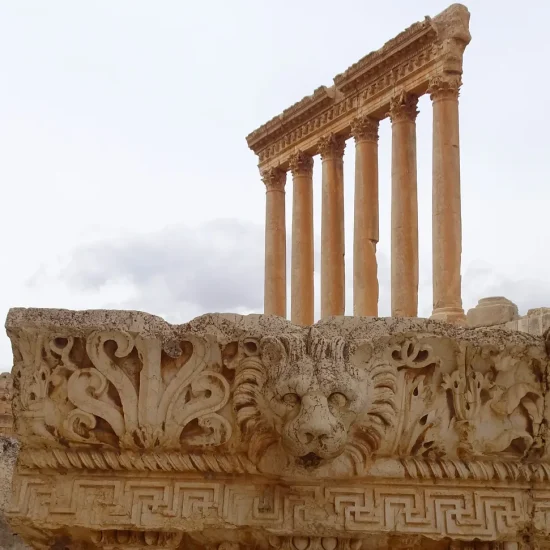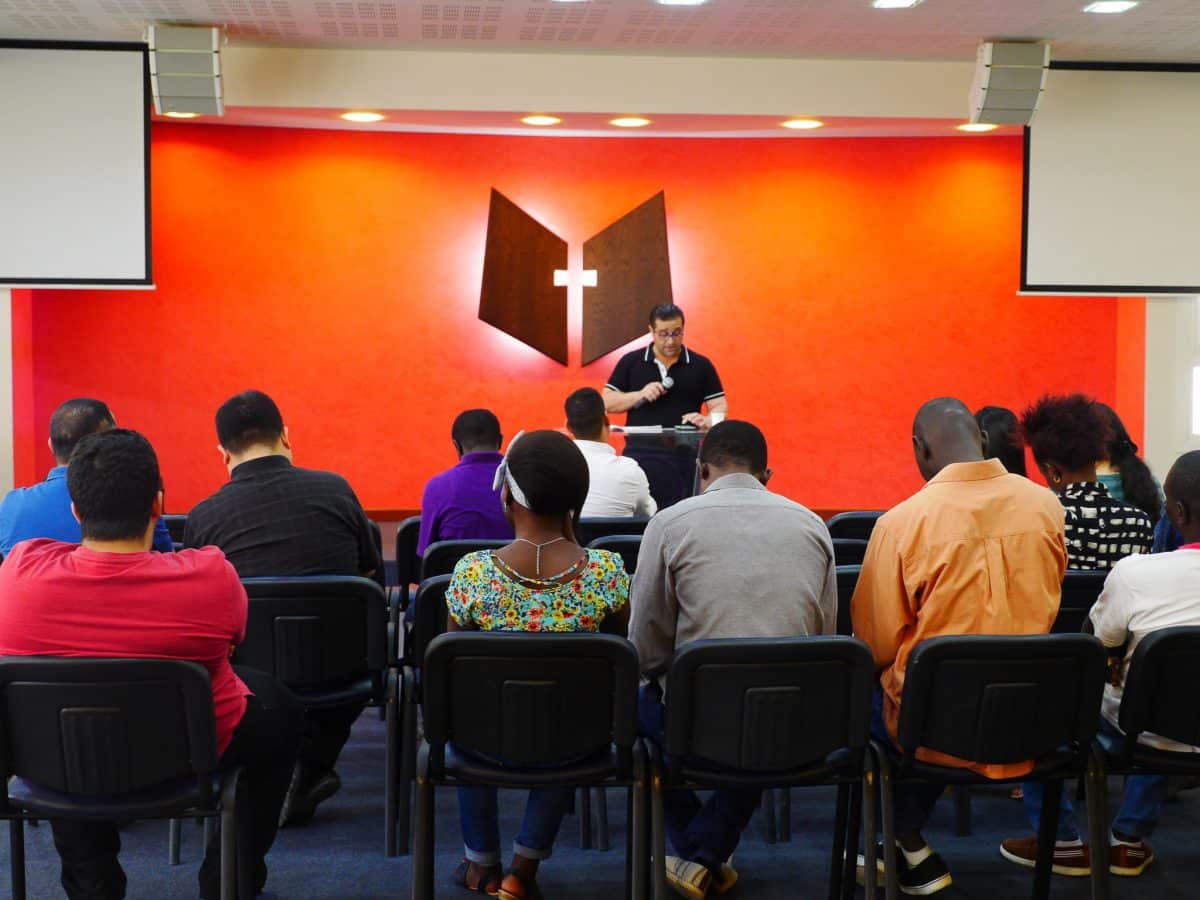
For the people in Lebanon, the past six months have been particularly been difficult — and those struggles are now amplified by the global coronavirus outbreak. Coming on the heels of months of dramatic protests in the streets, resignations of political leaders, and significant economic challenges, the small Baptist community already faced many challenges before coronavirus appeared in the Middle Eastern nation.
As of March 18, more than 217,000 people globally have been infected with the COVID-19 respiratory disease caused by coronavirus, and more than 8,900 have died. Lebanon, the country with the 50th-highest number of infections, has 133 who have tested positive and 4 dead. However, since the small nation’s population is less than two percent of that of the United States, the rate of infection per million is actually close to that of the U.S., where more than 8,000 have tested positive.
Additionally, many Middle Eastern nations are concerned since nearby Iran has the third-highest number of infections in the world, with more than 17,000 people infected and more than 1,100 dead. The first three coronavirus cases in Lebanon involved individuals who recently arrived from Iran.
In October, protests erupted in Lebanon over a number of issues, including complaints about high unemployment, unstable currency, and the government’s failure to provide essential services like water and electricity. After two weeks of protests, the country’s prime minister offered his resignation, but remained in office until a successor was named in January. Protests continued throughout that time, and economic woes worsened even after the political disruptions calmed down.
In that context, a pandemic like coronavirus adds significant challenges to an already-pressed society. All restaurants and many businesses have closed, and the nation’s Parliament also shut down. On Wednesday (March 18), the government closed to travelers the country’s land border with Syria, its seaports, and its international airport.
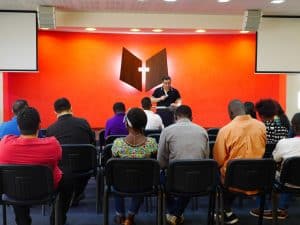
Chapel meets at Arab Baptist Theological Seminary before the global coronavirus outbreak. (Arab Baptist Theological Seminary)
Among those impacted by coronavirus restrictions is the Arab Baptist Theological Seminary in the Beirut suburb of Mansourieh el Maten. Founded in 1960, the school has produced hundreds of graduates from across the Middle East and Northern Africa region. Thus, despite a small local Baptist community, the school has a large impact across the MENA region. According to the Baptist World Alliance, the Convention of Evangelical Baptist Churches in Lebanon has only 32 churches with about 1,600 members.
Elie Haddad, president of ABTS, told Word&Way the school has moved coursework from on-campus to online, and they asked staff to mostly work from home.
“Even though our offices are almost empty, we are continuing all our ministry online and remotely. We will be posting updates almost daily on our Facebook page and on our website,” he added. “Most Baptist churches in Lebanon closed their doors yesterday [March 15] and had their services streamed. Most of the country is shut down, at least until the end of the month.”
An online statement on March 13 from ABTS explained the school made the decision to close on-campus instruction since “our students live in close proximity in our dorm building, and the healthcare system in Lebanon is under-prepared and over-stretched.” ABTS noted they had previously been working on an online platform to launch a distance-learning program, so they offered thanks to God for helping already prepare them for this moment.
Loulwa El Maalouf, ABTS development and partner relations manager, told Word&Way that a few staff and faculty are “rotating in the offices with maximum precautions.” Additionally, many of the students are from other countries and haven’t been able to return home due to global travel restrictions imposed to stop the spread of coronavirus.
“So far many of our residential students were not able to return to their countries, but ABTS is certainly their second home and they will be well taken care of here,” she added. “It is a difficult time indeed, yet this is a great learning opportunity for our students who are being trained to serve the Arab Church where difficulties are the norm.”
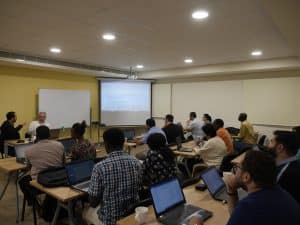
A class meets at Arab Baptist Theological Seminary before the global coronavirus outbreak. (Arab Baptist Theological Seminary)
A March 17 online statement from ABTS announced the airport in Khartoum, Sudan, suddenly shut down the previous evening just before ABTS Sudanese students were to fly home. The statement added that a total of 26 students were still on campus and unable to travel due to “the pandemic’s travel restrictions.”
On March 18, ABTS announced in an online statement that their 17th annual Middle East Consultation, a conference on the ABTS campus in June, would be adjusted to a remote-access format. This year’s topic had been “The Gospel in Public Life” to explore how to biblically engage in politics and society in that region and beyond.
“Like much of the world, Lebanon is taking swift and drastic action to mitigate deteriorating public health conditions brought on by the virus and it is no longer deemed viable to organize a global gathering at the seminary,” the statement explained. “We are aware of the gravity of the situation and committed to taking responsible measures to protect individuals and communities in Lebanon and around the world.”





